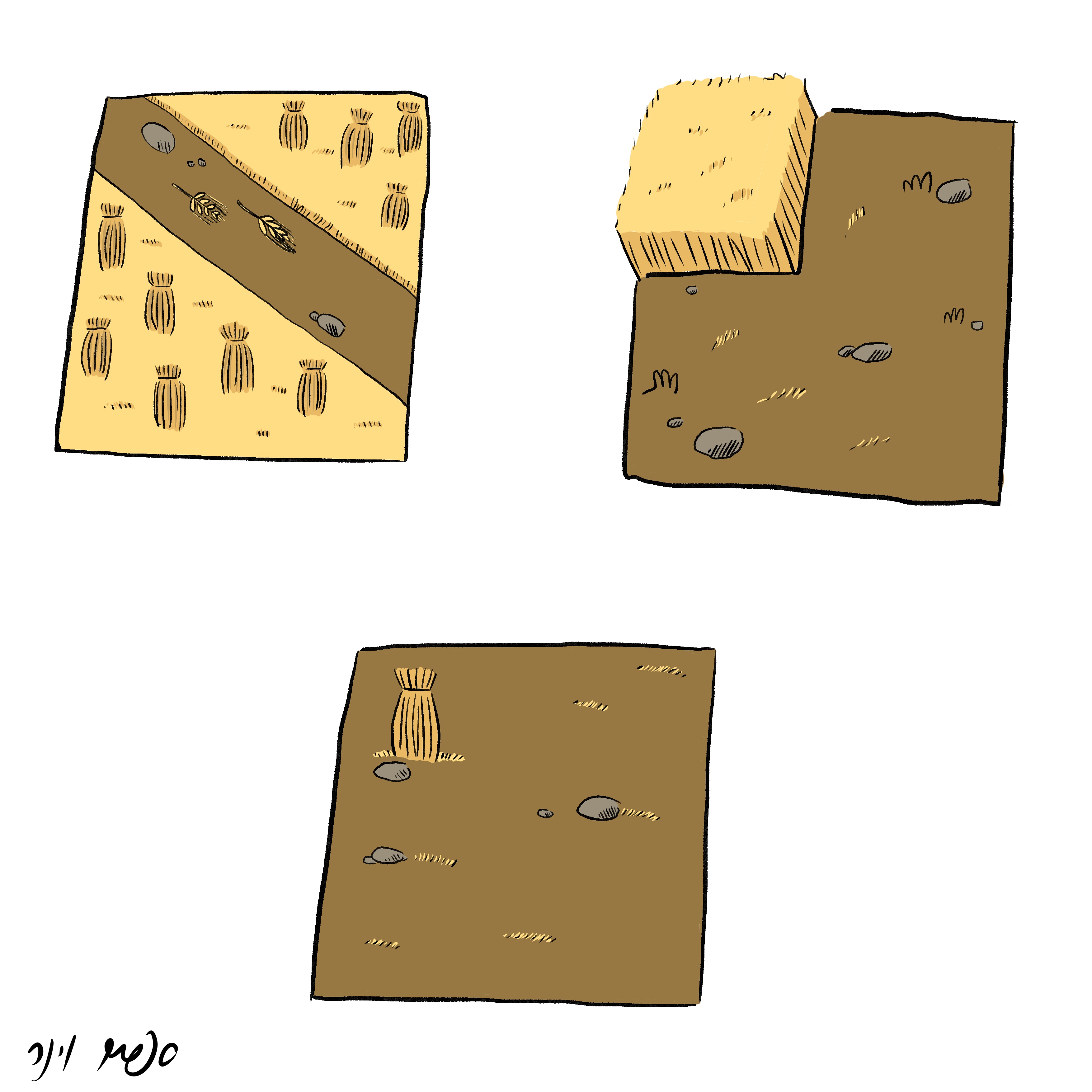
Leket (gleanings):
Leket pertains to the small amount of wheat stalks that fall in the field during the harvest. According to Jewish law, if one or two stalks fall, the land owner must leave them for any poor people who wish to collect them, however, if three stalks fall together, they are not considered leket and the owner may gather them. If the owner did not leave the leket stalks, and continues to grind the wheat into flour and make bread, the laws of leket will still apply, and the owner must give the baked bread to the poor.
Shechecha (forgotten produce):
This refers to agricultural produce that was forgotten in the field. The Torah commands the land owner to leave it for the poor. According to Jewish law, shechecha applies to one or two (but not three or more) sheaves of grain (or other groupings of agricultural produce) and would not be located by the owner unless they would search specially for them. Therefore, any grouping of produce that is stored in way that the owner would not forget them (for example: its location, its shape, or content) is not considered shechecha and the field owner is not required to leave it for the poor.
Peah (corners):
The refers to a small amount of plants that grow in the field’s corner. The field owner must not reap it, and leave it there for the poor. There is no quantity prescribed by the Torah, however, Rabbinical decrees set the amount at one-sixtieth. The owner is forbidden from saving the peah for one particular poor person. The rule is: first come, first serve. The poor person may not “reserve” the peah produce for himself, and may not mark it with by spreading his garment over it. Even if this was done, any other poor person has the right to claim it.